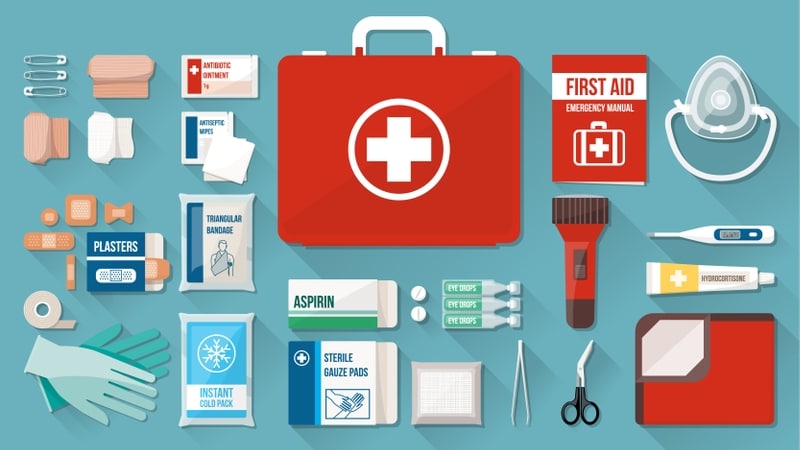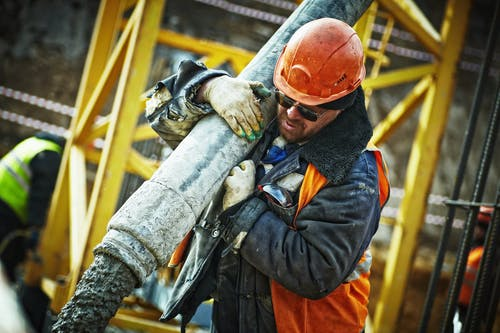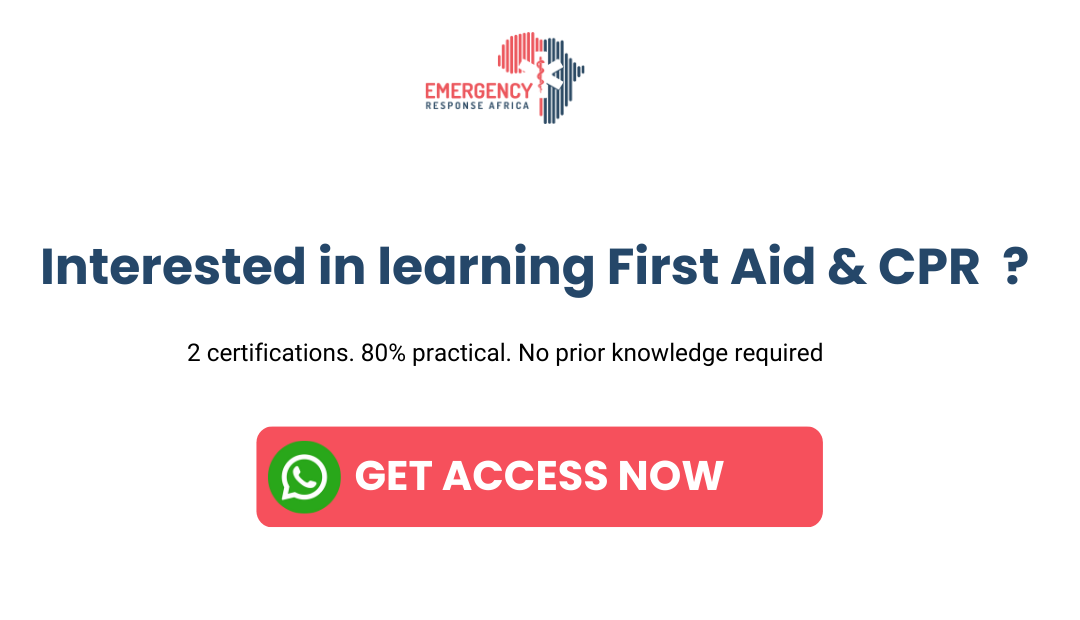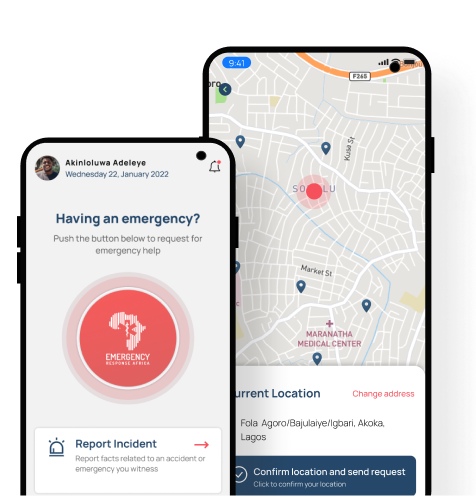The primary focus of first aid training is to provide you with the skills and knowledge necessary to minimize the effects of accidents or illness. The benefits of first aid training in oil and gas are enormous in preventing or reducing damages.
What is First Aid
First Aid is the emergency care and treatment of a sick or injured person before more advanced medical assistance, such as emergency medical services (EMS), arrives.
Essentials of First Aid for oil and gas workers
Most injured or ill service members in the oil and gas sector sometimes cannot return to their units to continue working to support themselves and meet their needs primarily. Some health companies usually do not have first aiders around the plants.
Therefore, every employer or supervisor in the sector should learn these first aid basics, as they will be needed at any point of emergency to save the casualty’s life within a given and appropriate time before emergency management service arrives with advanced medical care.
- Check for BREATHING: Lack of oxygen intake could lead to death if nothing is done in a few minutes.
- Check for BLEEDING: Life cannot continue without an adequate volume of blood to carry oxygen to tissues.
- Check for SHOCK: Unless shock is prevented, first aid performed, and medical treatment provided, death may result even though the injury would not otherwise be fatal.
RELATED SERVICES

What are the Benefits of First Aid Training in Oil and Gas
1. It Can Save Lives
The most important benefit of undertaking first aid training is saving a life. According to a British Red Cross study, up to 59% of deaths as a result of injuries may have been prevented if first aid had been given before the arrival of the emergency services. Here’s another statistic for you – in the case of cardiac arrest, if CPR is performed straight away, it could double or triple the chances of survival. Robust statistics show how necessary first aid training can be, especially with practitioners in the oil and gas space.
2. Increased Confidence and Calmness
First aid training for oil and gas experts prepares employees for emergencies and enhances their confidence in handling crises either on the sea or off the dock. Medical emergencies are unpredictable, making them both difficult to prepare for and challenging to remain calm and in control.
Typically, the more clarity you get about an aspect of life, the more knowledgeable you become, and it increases your confidence level on that subject. First aid training for oil and gas experts is no exception to this rule. Attending a course and learning first aid from ERA will help instill confidence in yourself and your ability to deal with a medical emergency.
3. Increased Safety Consciousness
Through first aid training, you will naturally become more safety conscious. As you cover the course curriculum, it is because you will become increasingly aware of the risks and dangers in the workplace and everyday surroundings.
Spotting potential risks and dangers with your heightened awareness makes you more inclined to practice safety habits, making you more safety-conscious. It’s no surprise that safety consciousness is one of the most influential factors in the prevention of accidents. If you are safety conscious, it means you value safety, allowing you to set a positive example for your colleagues, friends, and family.
4. Improved Communication Skills
Communicating will set you in good stead for many different situations you may face, none more so than in a medical emergency. First aid training will teach you how to communicate and adapt. You will learn how to build rapport with the casualty, helping reassure the person that you can be relied on.
Imagine a situation where the victim is in panic or shock, whether a child or an adult, and you need to know what happened. You will not only get information if you are trained in first aid. Communication is one of the benefits of first aid training in oil and gas. Furthermore, after collecting this information from the victim or eyewitness, communication with the emergency management service must be accurate and precise, hence the need for first aid training.
5. Long-term Health Benefits for Employees
Address the broader health benefits of first aid training, such as improved personal safety skills that extend beyond the workplace. Employees trained in first aid are better equipped to handle emergencies at home or in their communities, contributing to a culture of safety that benefits everyone involved. It then shows that the long-term benefits outweigh the cost of having first aid training in oil and gas.
RELATED SERVICES
Difference Between First Aid Training in Oil and Gas from Other Sectors
The key differences between first aid training in the oil and gas industry and other industries stem from the unique hazards, regulatory requirements, and emergency response needs specific to this sector. Here are the main distinctions:
1. Nature of Hazards
- Oil and Gas Industry: First aid training for workers in the oil and gas sector helps minimise the risks they face, such as exposure to hazardous materials, high-pressure environments, fire and explosion hazards, and potential for chemical spills. Therefore, creating unique scenarios, including dealing with burns, chemical exposure, and injuries from heavy machinery.
- Other Industries: Many other industries have their risks and hazards attached to their line of work, for example, in construction issues like a fall or electrical outburst or in an office setting where an employee gets a strain on the foot.
2. Regulatory Requirements
- Oil and Gas Industry: Compliance with strict regulations is essential. For example, OSHA mandates specific first aid training for oil and gas operations, including basic first aid and specialized training, such as H2S (Hydrogen Sulfide) awareness, due to potential exposure to toxic gas.
Training must meet industry-specific standards to ensure that workers are prepared and well-prepared for emergencies unique to offshore or remote locations.
- Other Industries: While general industry standards exist for health as set by OSHA, the requirements will be more relaxed than they are for the oil and gas sector.
Then, many other industries will have the fundamental and not additional advanced components as expected in oil and gas operations.
3. Emergency Response Protocols
- Oil and Gas Industry: First aid training helps to ensure the right decisions are taken primarily in high-pressure situations, which affects the outcome to a large degree. The protocol often includes comprehensive emergency response protocols that cover evacuation procedures, managing hazardous material incidents, and coordinating with emergency services in remote locations.
- Other Industries: In contrast to the oil and gas industry, emergency response protocols in other industries are often simpler, focusing on basic first aid responses. The emphasis is more on individual injury management, rather than the large-scale emergency scenarios requiring multiple teams’ coordination.
4. Training Content and Depth
- Oil and Gas Industry: Training programs are typically more extensive, covering advanced topics such as trauma management, use of specialized equipment (like AEDs), and handling specific chemical exposures or environmental hazards. This depth ensures that workers are well-prepared for a variety of critical situations they might encounter on-site.
- Other Industries: First aid training may be more general in nature, focusing on basic skills such as CPR, wound care, and choking relief without delving into industry-specific emergencies or advanced medical techniques.
5. Frequency of Training
- Oil and Gas Industry: Due to the high-risk nature of the work environment, first aid training is often conducted more frequently to ensure that all employees remain current with their skills and knowledge regarding emergency procedures.
- Other Industries: In many sectors, first aid training may be required less frequently, often every few years, unless there are changes in regulations or workplace conditions.
These differences highlight the critical need for tailored first aid training programs in the oil and gas industry to ensure worker safety and compliance with regulatory standards while addressing the unique challenges faced in this field.
RELATED READING
Which First Aid Training Course is Most Suitable for Me
Emergency Response Africa First Aid Training for corporate organizations offers tailored programs to enhance workplace safety and preparedness. Delivered on-site or virtually, our courses equip employees with vital skills to handle emergencies effectively. Integrating practical training with real-life scenarios ensures your team is ready to respond swiftly and confidently, promoting a safer and more secure work environment.
First Aid And CPR Training From ERA
Knowing how to act when a victim has an emergency offshore or onshore is essential because the victim of an emergency life depends on it and if nothing is done, it could cause many more problems.
Using our First Aid Training program for oil and gas experts, you will learn different first-aid treatment methods and how to deal with emergencies. Our trainings are practical. With the First Aid certificate in your pocket that is recognised globally, you know you can act when it matters because you have been equipped to handle it!




